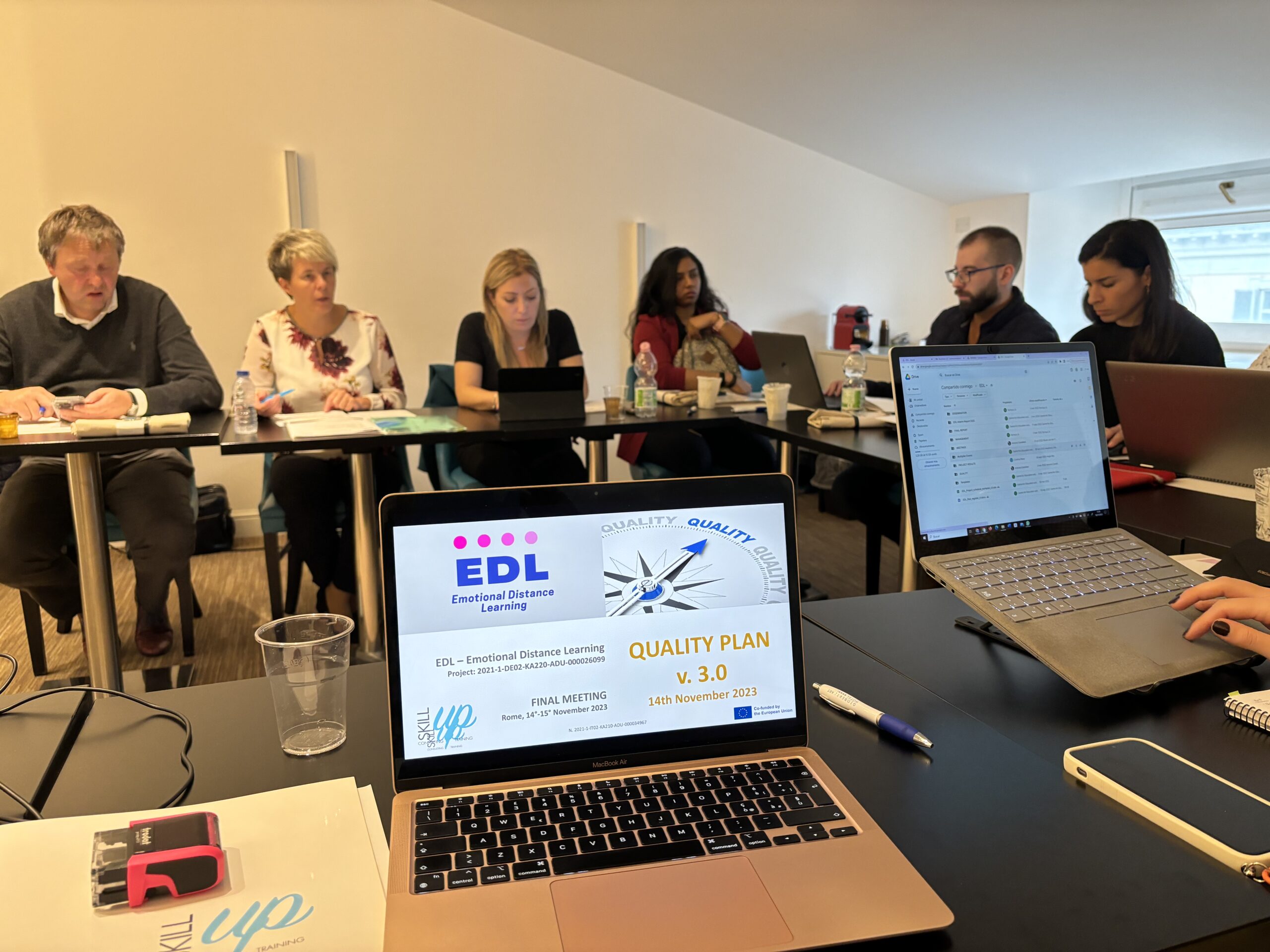By Antonia Castellani, Skill Up
In recent years, the Adult Education sector (AE) has begun to collaborate more extensively and systemically with Erasmus Plus programme. Adult education projects have grown and have begun to address the difficulties of trainers in their teaching practice in a more incisive way.
The year 2020 brought a sudden and traumatic transformation to the AE sector in the way teaching was conceived, both because of the need to resort to online training and because of the drastic reduction in teaching hours.
AE trainers have been particularly hard hit by this transformation, both practically and emotionally:
- AE trainers are often freelancers, so they lost a lot of their livelihood during Covid.
- For the same reason, there is more competitiveness among AE trainers than teachers in other fields, resulting in the difficulty of asking for help or admitting a problem.
- AE trainers are mostly women over 40, who had to keep family care and learning new technologies together during Covid, in order to stay in the labour market.
- Unlike schools, AE learners are not obliged to attend classes, so any mistake, any inattention on the part of teachers can mean the loss of a learner.
One can therefore understand the emotional burden that AE teachers have been carrying in the last three years.
Erasmus Plus is the only programme that enables teachers not only to enrich their teaching skills, but also to find a listening ear for the problems of their profession, for free.
EDL – Emotional Distance Learning project fits right in this wake, seeking to provide AE teachers with an empathetic response to often unspoken needs, relating to the need to endure and overcome significant emotional difficulties.
In our opinion, it is very important that the dissemination activities highlight the role of Erasmus Plus in the creation and development of a Community of Practice in the AE sector, because AE trainers need a safe place where they can discuss their needs in terms of competences and empowerment tools.
Another reason to point to Erasmus to bring teachers together is that AE is the sector in which such a Community of Practice is less cohesive, precisely because – as already pointed out – AE trainers are often freelance and therefore in competition with each other.
How does EDL project plan to bring AE trainers closer to Erasmus Plus training?
- By creating a sense of belonging to a professional group,
- By showing that we are familiar with the difficulties of the sector and offering practical solutions to the problems highlighted,
- By creating opportunities to share experiences,
- By offering a broader, European-wide vision.
Moving from single teachers to training agencies in Adult Education, the partners in EDL project strongly believe that all training agencies should participate in at least one Erasmus+ project, for a number of reasons:
- Our learners deserve innovation and it is up to us to seek it out in other countries, opening ourselves up to comparison with contexts different from our own. Many times, the most innovative methods come from countries that one would not expect to be in the vanguard, but instead are home to organisations of excellence.
- Trainers often find it difficult to keep up-to-date: high-quality training is expensive and sometimes the supposed ‘high quality’ can prove disappointing when the facts are proven. Erasmus+ allows trainers to update free of charge.
- Erasmus projects are an excellent exercise in teamwork and group management. Therefore, in addition to the competences developed through the training tools provided, these projects allow you to work on yourself, to hone meta-competences and skills that are necessary for trainers and organisations: critical thinking, management skills, leadership, understanding of group dynamics, creativity and problem solving.
- Working closely with partners from other countries helps to develop and maintain open-mindedness towards diversity: Erasmus projects allow not only to visit places and get to know people, but also to come into contact with different cultures, customs, religions and traditions, thus helping to combat racism and xenophobia, which have become increasingly evident in recent years. Nothing like an Erasmus+ project helps us to feel part of Europe and to be open to diversity.
- Finally, travelling and meeting new people is great, especially after two years of pandemic…



0 Comments